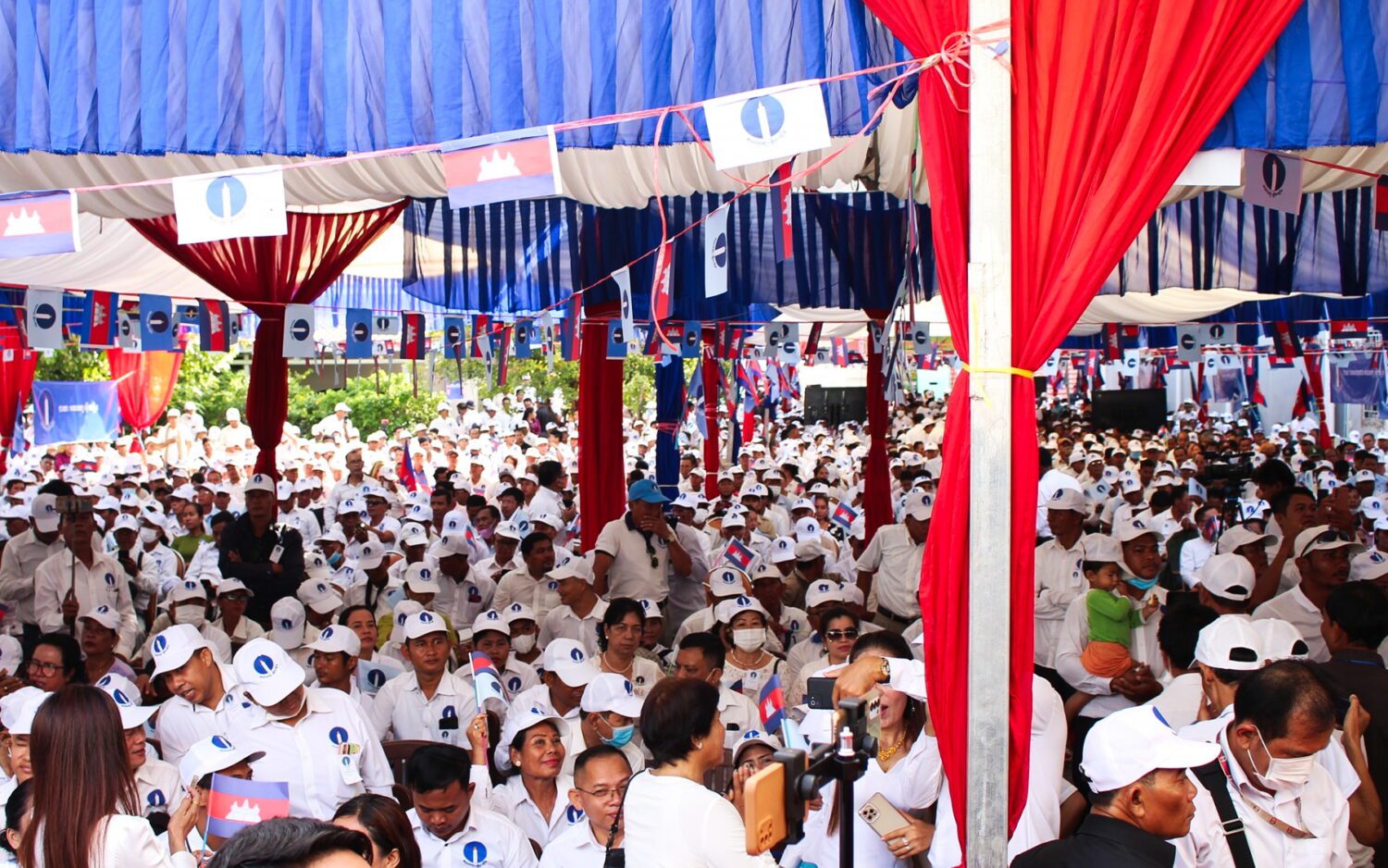The primary opposition Candlelight Party said it would consider not contesting the upcoming July national election if the political threats and use of the courts against its senior leaders and members persisted.
The opposition party released a press release on Monday which made non-specific allegations of party officials being intimidated and threatened, and the filing of court complaints against its leaders with large punitive damages.
“The Candlelight Party would like to publicly clarify that the Candlelight Party will reconsider the possibility of participating in the upcoming election if the acts of threatening continue to happen against the Candlelight Party,” the press release reads.
Last week, Prime Minister Hun Sen lambasted opposition officials for criticizing the Cambodian People’s Party, and warned there were only two ways to react: violence or lawsuits. Within days, the CPP’s Tbong Khmum committee filed a lawsuit against Candlelight senior advisor Kong Korm for incitement.
Hun Sen also ordered an Anti-Corruption Unit investigation into Korm occupying Foreign Ministry land in Phnom Penh, but withdrew the investigation and a related lawsuit after the Candlelight official agreed to vacate the house and land.
While Candlelight’s press release did not detail these events it said increasing political pressure was breaking the spirit of its supporters and instilling fear among them, which the party found unacceptable.
“The Candlelight Party would like to appeal to the head of the government and all relevant institutions to stop all kinds of threats against the Candlelight Party and civil society to make a better environment and guarantee the process of parliamentary elections,” the release reads.
But just hours after the statement was released, Candlelight vice president Thach Setha was arrested over a check-bouncing case dating back to 2019.
In the morning, he said the political situation had been worsening since the commune election last June and was making it hard for senior politicians in the party to do their politicking.
“If there are still restrictions and persecution and we cannot do our political activity, we cannot accept it,” Setha said. “The law allows us to do [political activities] and if we cannot do any activities, then what is the point of doing [politics]?”
The CPP lawsuit against Korm centers around questions he raised about the ruling party’s formation, alleging in a speech that there was Vietnamese involvement. Setha said it was fair to question the formation of a party, there was no incitement of violence, and it was part of the political back and forth between parties.
In addition to Korm, party vice president Son Chhay has been ordered to pay the CPP $1 million for incitement, after he alleged there was “vote stealing” in the June election. The court also put an injunction on two of his properties.
Sok Eysan, a CPP senator and spokesperson, said the political environment was positive and that legal action taken against anyone — including ruling party officials — was not a threat and only law enforcement taking its course.
He said opposition parties raised these issues only to malign Cambodia’s reputation overseas. “Their evaluation is with the intention of causing a bad political environment so that they can challenge the election results in advance,” Eysan said.
The spokesperson added that there were nearly 50 registered political parties in the country and that a legitimate election was not incumbent on Candlelight’s participation.
“It does not mean that without them, we cannot have the election process,” he added.
National Election Committee spokesperson Hang Puthea made similar comments and said accusations of intimidation and threats was a political strategy of “a political party,” adding that there was no legal requirement for a specific party’s participation in the election.
“In the law, there is nothing stating that there needs to be a party with this name or that name [in the election],” he said. “Whenever there is participation from political parties, it is the NEC’s duty to manage and organize the election.”
However, after the main opposition CNRP was controversially disbanded by the Supreme Court in 2017, the ruling CPP swept all 125 seats in the National Assembly in the 2018 election. The Candlelight Party has the support of many of the CNRP’s former leaders.
Korn Savang, a senior official at election watchdog Comfrel, said the political rhetoric was heated, and parties should refrain from personal attacks in campaigning.
“I have seen they are not mature, both the parties outside government and the ruling party. So I just want to say that both rivals should do whatever it takes to create a better environment.”












